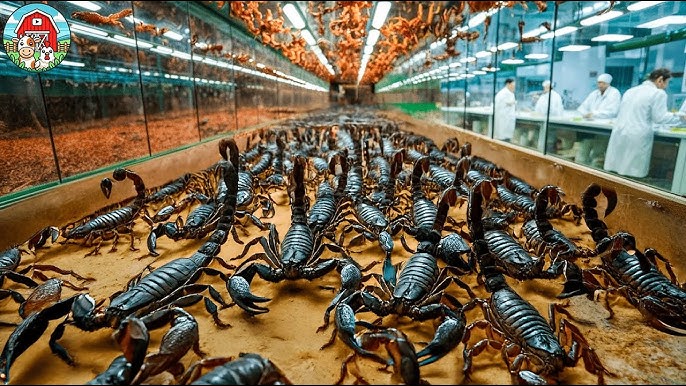In a world where conventional jobs seem to offer limited financial freedom, an unlikely industry is quietly turning people into millionaires. This hidden goldmine isn’t buried in oil wells or locked behind high-tech startups. It crawls, stings, and secretes one of the most valuable substances on earth. Welcome to the intriguing world of scorpion farming, a lucrative frontier that is transforming lives.
What makes scorpions so valuable?
Scorpions produce venom, a rare and highly sought-after compound used in medicine, scientific research, and biotechnology. One gram of scorpion venom could be worth up to $10,000 or more depending on the species. It’s used in treating chronic pain, arthritis, cancer, multiple sclerosis, and even as a component in anti-venoms and brain tumor treatments. This has positioned scorpion farming as a vital player in modern healthcare innovations.
Why scorpion farming is gaining ground
- Low start-up cost: You don’t need vast acres of land or expensive equipment to start a scorpion farm.
- High return on investment: With proper care, a small colony can produce venom worth thousands of dollars annually.
- Global demand: The biotech and pharmaceutical industries across Europe, America, and Asia are constantly in search of reliable venom sources.
How to start a scorpion farm with minimal capital
- Research and learn: Understand local regulations, species requirements, and venom extraction techniques.
- Acquire the right species: Androctonus crassicauda and Hottentotta tamulus are popular for their high venom yield.
- Create a safe habitat: Scorpions thrive in controlled, dark environments with limited disturbance.
- Ensure safety measures: Handling venomous creatures requires training and safety protocols.
- Invest in extraction equipment: Milking venom should be done humanely and with certified tools.

Is scorpion farming legal in Nigeria and other African countries?
This remains one of the most frequently asked questions (FAQ). In many countries including Nigeria, scorpion farming is not illegal, but may require licensing. Interested individuals should consult their national environmental or agricultural bodies to ensure compliance.
The bigger picture, beyond venom
Scorpion farming isn’t just about profits. It’s also tied to sustainable agriculture, environmental conservation, and creating non-conventional sources of income. By farming scorpions in a controlled setting, it reduces the need to capture them from the wild, helping to maintain biodiversity and ecological balance.
A golden opportunity waiting to be explored
Scorpion farming may sound intimidating, but it holds immense potential for those willing to learn and take calculated risks. As Africa seeks new paths for economic empowerment, embracing unique, high-value ventures like this can redefine financial independence for many. Ready to explore the world of venom and value? Your golden opportunity may just crawl on eight legs.

